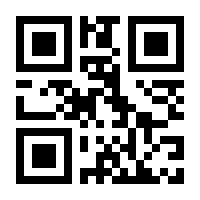
×
![Buchcover ISBN 9789027714053]()
High-Precision Earth Rotation and Earth-Moon Dynamics
Lunar Distance and Related Observations Proceedings of the 63rd Colloquium of the International Astronomical Union, held at Grasse, France, May 22–27, 1981
herausgegeben von O. CalameInhaltsverzeichnis
- I.
- Combination of Earth rotation parameters obtained in 1980 by various techniques.
- Optical observations of Time and Latitude and the determining of the Earth’s rotation parameters in 1980.
- Rotation of the Earth from Lunar Laser Ranging.
- Earth rotation from a simultaneous reduction of LLR and LAGEOS laser ranging data.
- Earth rotation in the EROLD framework.
- Intercomparison of Lunar Laser and traditional determinations of Earth rotation.
- An intercomparison of Connected-Element Interferometer and Lunar Laser Earth rotation parameters.
- Earth rotation information derived from MERIT and POLARIS VLBI observations.
- Polar motion and Earth rotation from LAGEOS Laser ranging.
- Comparison of polar motion results using Lunar Laser Ranging.
- The pole position in October 1980 as determined from LAGEOS laser data.
- Comparison of polar motion data from the 1980 project MERIT short campaign.
- Progress report on project MERIT.
- General Discussion.
- II.
- Dependence of the lunisolar perturbations in the Earth rotation on the adopted Earth model.
- Atmospheric angular momentum and the length of day.
- Earth’s rotation and polar motion based on Global Positioning System satellite data.
- Activities of astro-geodynamics research in China.
- III.
- Dissipation in the Moon : A review of the experimental evidence and physical implications.
- Planetary and Earth figure perturbations in the librations of the Moon.
- Modelling the effect of Earth tides in the lunar orbital motion.
- Is the gravitational constant changing ?.
- Results from Lunar Laser Ranging data analysis.
- The relativistic planetary perturbations and the orbital motion of the Moon.
- Analytical theories of the motion of the Moon.
- Numerical studies of the lunar orbit at CERGA.
- Comparison of lunar ephemerides (SALE and ELP)with numerical integration.
- Comparison of ELP-2000 to a JPL numerical integration.
- Note about a new evaluation of the direct perturbations of the planets on the Moon’s motion.
- IV.
- Relations between celestial and selenocentric reference frames.
- On the absolute orientation of the selenodetic reference frame.
- On the accuracy of the 1980 IAU nutation series.
- Comments on the effect of adopting new precession and equinox corrections.
- Determination of coordinates for the Orroral lunar ranging station.
- Biases in pole position computed from data from different Navy Navigation satellites.
- VLBI measurements of radio source positions at three U. S. stations.
- Expansion of the disturbing function by factorization.
- General discussion.
- Adopted resolution.
- Index of subjects and names.



